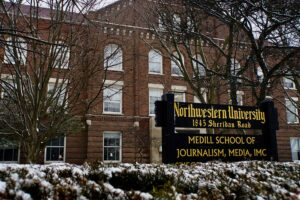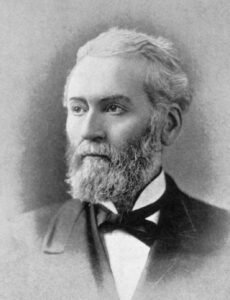
I was desperate to see him, and later asked myself why.
It’s because I needed to vent.
I was always a journalist. It’s all I ever wanted to do, all I ever wanted to be. My view is that life is about reporting on the world around me and being heard. It’s about getting to the source of its problems and opportunities, telling stories that nudge it in a better direction.
Medill introduced me to “my people.” Each time I see some, I feel at home. We speak the same language and have the same understanding.
A Chance to Vent

Publishers aren’t subject to the ethics of journalism. They’re only subject to the law, and only to the extent they can edge over it without getting caught.
The one journalism subject I wanted to learn about, the question of how the field might survive in an Internet world, was never taught. I argued about it when I was there, studied it after I left, but the school itself never gave it a thought.
There’s a reason. Northwestern has a business school, called Kellogg. Kellogg wants nothing to do with journalism, or journalism business models. Medill has a program of outreach to journalist organizations, but it’s only aimed at non-profits. Even that program is only focused on the process of journalism, not on earning the money needed to maintain the enterprise.
As a result the industry never adapted to the Internet and was broken by it. Medill now calls itself The Premier School for Journalism, Media & Integrated Marketing Communications, oblivious to the contradiction inherent in that description.
You can’t be both journalism and public relations. Advertising and reporting are not the same thing. You can’t simultaneously serve both readers and your sources. You must pick a side and if your answer is “both” you’ve picked one – the wrong one.
Coulda, Woulda, Shoulda

How do you tell the people what’s going on and keep the lights on? A paywall means you’re not telling the people what’s going on. A focus on process means you’re not helping them keep the lights on. I’ve been saying this my entire adult life, looked everywhere for answers, and the people who should have led me to them never even tried to find them.
Back in the fall of 1977, my first Medill lecture was offered by the late George Heitz. Don’t sit at the back of the room, he demanded. Run to the front. You’re witnesses, he yelled, not an audience.
If you came here to make money, he thundered, we have a business school around the corner. Go there.
I should have gone to Kellogg.










